 SELECTED
ISSUE
SELECTED
ISSUE
|
|
Leisure Management - Menopause

Everyone's talking about

|
|
| Menopause
|

Once a taboo subject, menopause – and its effects on women’s physical
and mental health – is suddenly a hot topic, and spas can offer a safe space
for women to learn about this phase of life, reports Jane Kitchen
|

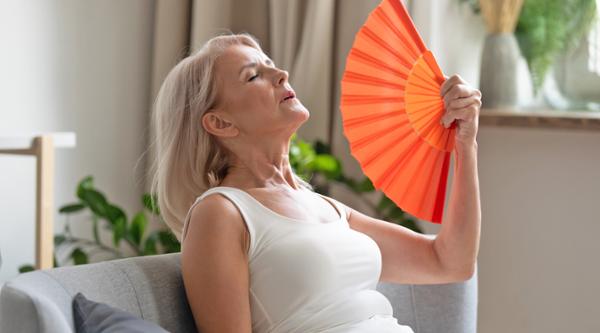
The media and outspoken female celebrities have helped dispel the taboo around menopause photo: shutterstock/fizkes
|
|
|
Considering it’s a natural process that affects half of the population at some point in their lives, it’s bemusing that it’s taken until 2022 for issues relating to menopause to be spoken about freely.
Mood swings, hot flushes, sleep troubles, weight gain, loss of libido, skin and hair changes, anxiety and depression can all be symptoms of both menopause and perimenopause – the transition between the reproductive and non-reproductive years. In fact, it’s only recently that anyone has talked about perimenopause at all, and most women experiencing it have been given no education whatsoever about the process.
A combination of social media, access to information on the internet, outspoken celebrities such as Stacy London in the US and Davina McCall in the UK, and the coming of (middle) age of Gen X have all come together to drive the emergence of menopause re-education. As menopause coach Sophie Benge – interviewed on page 68 for this article – explains, “the conversation has morphed rapidly from taboo to mainstream, as midlife women have found their collective voice.”
A landmark study from the Fawcett Society of more than 4,000 women in the UK found that nearly half (44 per cent) of women said their ability to work had been affected by menopause symptoms, but almost as many (45 per cent) have avoided speaking to their doctor because of perceived stigma. Even if they do raise the issue with a medic, there’s a massive gap in many healthcare systems when it comes to addressing menopause.
A study from AARP, (formerly the American Association of Retired Persons), a US-based group focusing on issues affecting those over 50 (www.aarp.org), found that while 84 per cent of women said symptoms interfered with their lives, only one in five received a referral to a menopause specialist. In the past, they may have been expected to just get on with it, but today, we know so much more about how to find relief, from diet and exercise to HRT, meditation and breathwork.
Women today are hungry for knowledge – and help. They’re learning about menopause from friends, the internet, TV, their doctors, and increasingly, at spas. Since the typical age for menopause – 45 to 55 – is also a prime demographic of spa guests, operators have an opportunity to establish themselves as trusted, safe spaces to learn about this phase of life. We ask our experts for their insights...
|
Stacy London
CEO, State of Menopause
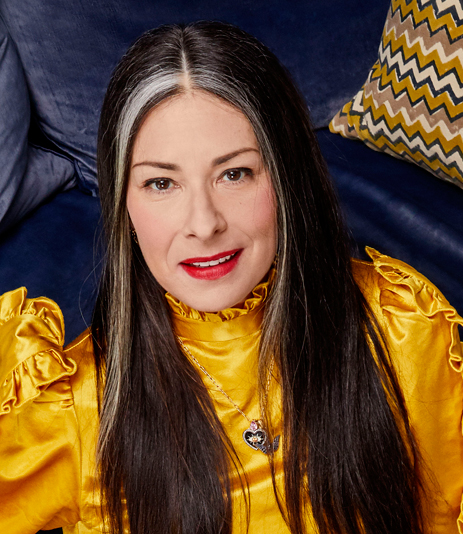
photo: State of Menopause
I equate spas with self-care: they allow us to take time out of our daily grind, reconnect with ourselves and nurture ourselves. We turn to spas for all kinds of health reasons. Menopause is a natural process which changes our bodies and minds, and those changes require education, self-care and some time out.
As spas are both restorative and clinical, addressing menopause can easily be accomplished by educating clients about potential symptoms in menopause and connecting them to spa services offered. For example, someone experiencing muscle fatigue and joint pain may benefit from massage or acupuncture. Someone experiencing inflammation may benefit from lymphatic drainage. A nutritionist or trainer can discuss best diet and strength-training practices to protect cardiac and bone health. Someone experiencing intense anxiety may benefit from massage or guided meditation.
Ultimately, the best ways for spas to address menopause is by creating an educational atmosphere and service selection that allows the consumer to understand what’s being offered to them in support of the menopause experience.
Since menopause is still stigmatised, we must be supportive and thoughtful of people during this transition and allow them to come to it on their own terms. Spas should advertise that they have specific menopause offerings, suggesting them when a client enquires or when it’s been established through examination that a client will benefit from a particular service.
Menopause has always been an important issue. It’s taken until now – certainly in the last 10 years – for us to discuss it openly. Gen X isn’t the first generation to experience menopause, but it’s the first to own it, understand it and educate around it. I’d say that’s a pretty big win from which future generations will benefit.
Gen X isn’t the first generation to
experience menopause, but they’re the
first to own it. I’d say that’s a pretty big win
from which future generations will benefit
Bobby Griffiths
Spa manager, Dormy House Hotel & House Spa
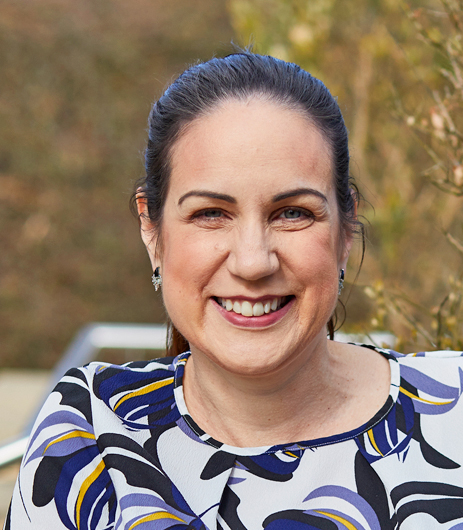
photo: Dormy House Hotel & House Spa
Spas need to be places that recognise menopause and offer support, understanding and empathy for those who find it challenging. This also includes our own teams and their welfare, not just our guests.
Spas are ‘safe spaces’ – places to truly relax, let go, to nurture and re-group. At Dormy House we treat the whole person by looking at their lifestyle, diet, mental health and wellbeing. If there are little things we feel will make a difference, we’ll suggest them. It shouldn’t be only about treating the skin or giving a massage.
We’ll host dedicated menopause retreats here later this year, with informal workshops, a specialist menopause doctor, a nutritionist, yoga, meditation, styling and an aromatherapy workshop, as well as use of our spa facilities and a safe environment to share experiences and gain valuable and knowledge.
We’ve seen major brands developing menopause products. However, we need to be careful we’re not just using it as a box-ticking exercise or worse – a marketing opportunity.
Menopause-related products need to give tangible results and existing treatments can be tailored to help – it’s just a matter of listening to your guest and personalising their care.
It’s about normalising the conversation. It’s a topic that affects so many people and not just women, but also their families, partners and children. The fact we’re talking about it now is just the beginning and a real step forward.
It’s about normalising the conversation.
It’s a topic that affects so many people,
not just women. The fact that we’re talking
about it now is just the beginning
Sophie Benge
Feminine embodiment and menopause coach
Spas can contribute to the growing conversation about menopause by addressing the subject head-on with related programmes, workshops, retreats and individual consultations to support women going through perimenopause and menopause.
Midlife women are a vital demographic for the industry, and there’s abundant opportunity to address their wellbeing as it changes during this transitional life phase.
That said, it’s important for spas to be sensitive when introducing menopause programming, as every woman experiences menopause differently. They also have different degrees of openness about talking about, or even addressing what’s going on. While every woman goes through menopause, their journey is highly individual.
Spas offer safe spaces and that encourages women to be more open about their vulnerabilities. Women learn so much from each other’s experiences and because we are, by nature, hardwired for community, we love to share and support one another. The nurturing atmosphere inherent in spas makes them a perfect place to hold workshops, retreats and programmes for women focused on menopause.
Residential retreats or day workshops can bring in experts who have specialist knowledge, such as doctors, nutritionists, movement or exercise coaches, feminine energy and intimacy coaches, embodiment coaches, mindset and emotional resilience practitioners.
My ‘Art of Being She’ concept offers workshops, a video course, retreats and private consultations to boost self-esteem and libido in midlife. I’m passionate about the power of connecting to our bodies, waking up our sensual aliveness and focusing on our sexual energy to bring more flow and happiness into our middle years.
My passionate belief in making midlife a positive journey of transformation centres around making a deeper connection with our bodies. We often sidestep the great well of energy within because we live constantly in our heads where mental chatter tends to drown out our body’s voice of wisdom. Spa treatments that – by their nature – encourage us to feel, to connect more closely to our senses within and to take the precious time to be, absolutely help us embrace our innate feminine power and pleasure.
Spas offer an ideal environment to support women with transformative experiences – intellectual understanding, somatic experience, safe space for community, treatments and products. There’s been a groundswell of midlife female empowerment across media, the workplace and social platforms and menopause is an integral part of this. It’s time for spas to join the wave!
• Sophie Benge will run an ‘Awaken The Feminine’ retreat with Euphoria Retreat in Greece in November 2022, designed to boost emotional resilience, joy, happiness and self-esteem.
Also upcoming are Ageing Gracefully (menopause) retreats, featuring hormone doctors, nutritionists and intimacy coaches.
I’m passionate about the power of
waking our sensual aliveness and
focusing on our sexual energy to bring
flow and happiness to our middle years
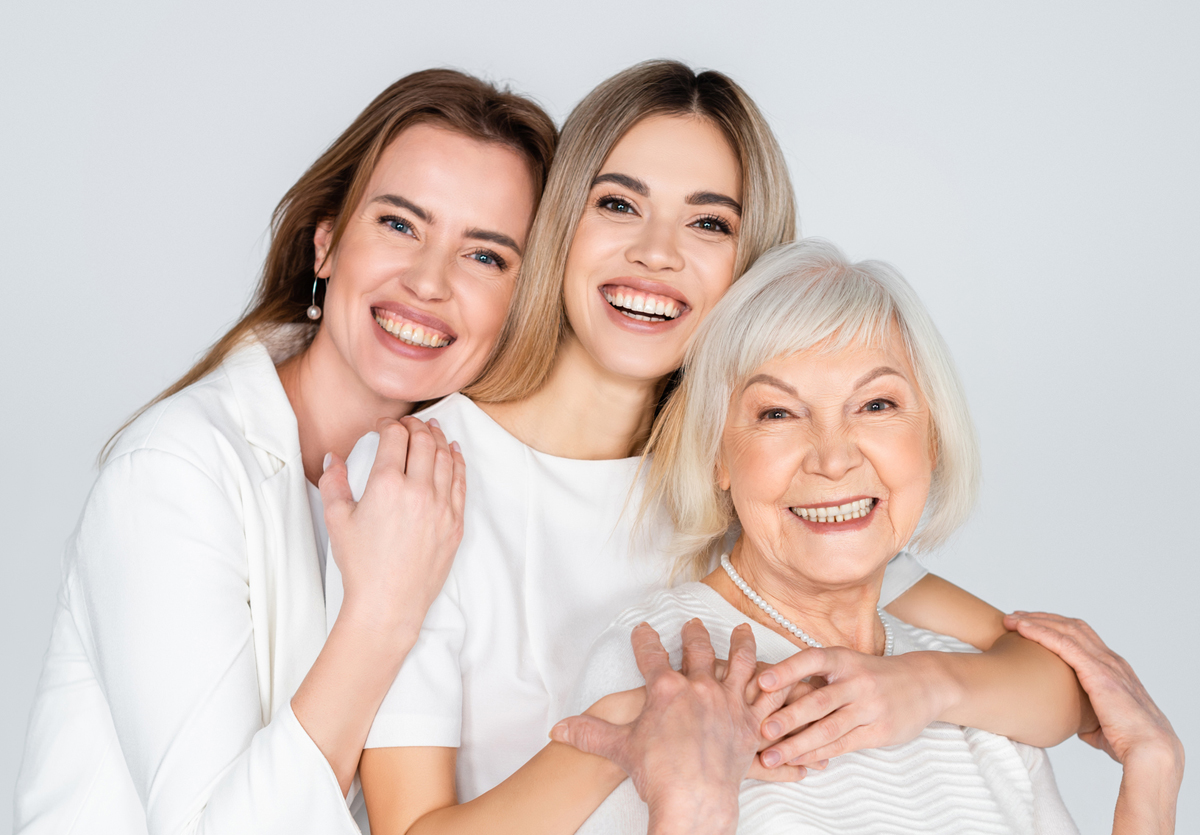
Spa treatments by their nature, help women to connect to their senses / photo: shutterstock/LightField Studios
Victoria Kruse
Sustainability and wellness mentor, Amilla Maldives
Menopause has always been an important time in a woman’s life; the difference now is that women are talking about it, and aren’t afraid to admit it’s happening to them.
Menopause and perimenopause have effects on both body and mind, and many women find it daunting to navigate changes in their hormones during this time, along with accompanying symptoms such as hot flushes, mood swings, sleep disturbances, brain fog, weight gain and anxiety.
Being able to talk about what’s happening with others is truly key; not talking about the subject, or thinking menopause is shameful or it’s the end of your femininity are common feelings for many women. This time can also cause a feeling of not wanting to be close to others or indeed even touched by others, and this can lead to a feeling of isolation and depression.
A massage can alleviate these feelings and deal with the physical manifestations of stress, while lymphatic drainage can assist with rebalancing the body. Treatments such as facials also help women feel better about themselves during this time of change. Meditation can play a key role in giving space in our minds, allowing improved sleep and rest.
We’ve recently launched a perimenopause and menopause wellbeing retreat at Amilla Maldives, which explores natural ways to boost female hormones, while empowering women to manage their symptoms through movement, nutrition and mindful activities.
Our retreats have been developed to give women the tools they need to adapt to the changes of perimenopause and menopause, while in the company of supportive women and a team of expert practitioners, enabling them to tune into their body’s rhythm and renew their energy.
Activities include yoga, meditation and Pranayama for all levels, to minimise symptoms and promote deep sleep; masterclasses to demystify the subject; and Sufi Whirling meditation and intuitive dance to achieve mental clarity and improve overall wellbeing – accompanied by balanced wellness meals and workshops on eating well to support hormone transitions and weight changes.
Confidentiality is assured and valued, as guests are sharing personal space and a degree of intimacy, especially as they’re often shedding clothes and having someone touch their skin. This closeness creates an environment that promotes confidence for guests in talking about themselves and their body.
Our retreats have been developed to
give women the tools they need to adapt,
while in the company of supportive
women and a team of expert practitioners
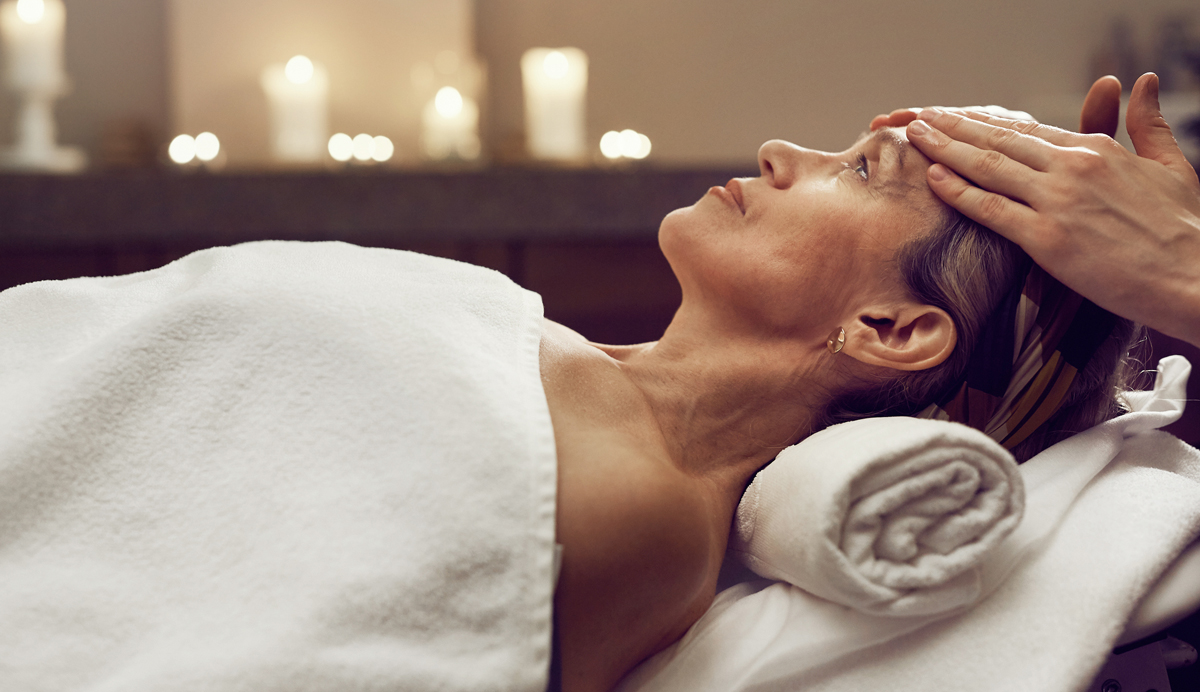
Massage can help alleviate stress that women may be feeling / photo: shutterstock/SeventyFour
Kh Dusadee Tancharoen
MD, RAKxa, Bangkok, Thailand
Menopause is finally becoming a more open topic that women are less afraid to talk about. Although some women are lucky enough to sail through their menopause with barely a symptom, it’s not an easy transition for all. By talking about it openly, raising awareness and putting the right support in place, women can communicate and educate themselves on how to cope with and/or prevent the side effects from menopause. It’s an issue that 50 per cent of the population face and it’s important that it is addressed in order to make the process as bearable as possible.
By offering female-focused treatments and programmes, medical wellness retreats can help address the issue of menopause. It’s important to remember that there is not a ‘one programme fits all’ type retreat. Every woman’s menopause journey is different, so at RAKxa, we make sure we treats guests with bespoke programmes tailored to each individual.
We do this by focusing on comprehensive diagnostic tools; all guests must go through assessments and consultations with our health and wellness advisor and doctor, including taking lab tests to check on the root cause of their issues.
One of the specialty treatments we recommend to guests facing menopause is Thai Traditional Woman Care Massage (also called the uterine massage). This is a whole-body massage that focuses on the energy lines of the body, paying particular attention to the abdomen. This traditional Eastern medicine treatment is a natural way of easing menopause symptoms by taking care of the uterus and making it stronger, increasing blood flow and releasing hormones. It can also help provide relief of menstrual cramps for perimenopausal women.
We also suggest our menopausal guests have acupuncture, as there is evidence for the positive impact of acupuncture on menopausal symptoms, including hot flushes, sleep disturbances, and mood swings. We’ve found it to be a fantastic remedy for menopause, and we also offer moxibustion – a traditional Chinese medicine technique involving the burning of mugwort to promote healing – to further enhance the results of acupuncture. This session strengthens the blood, stimulates the flow of Qi, and promotes a sense of enhanced wellbeing. There’s also evidence to support the use of yoga to treat hot flushes, sleep quality and stress.
By visiting a medical wellness retreat like RAKxa, women benefit from trusted advisors who can help them to understand their own menopause journey, and then tailor-make a programme to fit their needs. And just as importantly, they’ll be given invaluable advice on how to manage their symptoms at home once they leave. l
It’s important to remember that
there is not a ‘one programme fits
all’ type retreat. Every woman’s
menopause journey is different
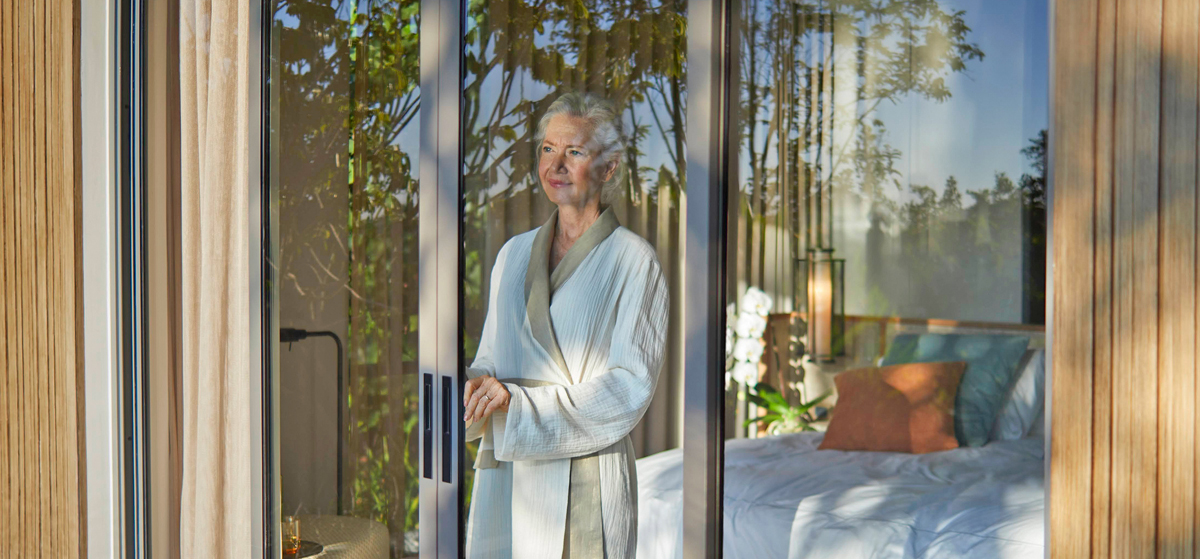
It’s vital to tailor programmes / photo: RAKXA
|
|
 |
| Originally published in Spa Business 2022 issue 2
|
|
 |
|